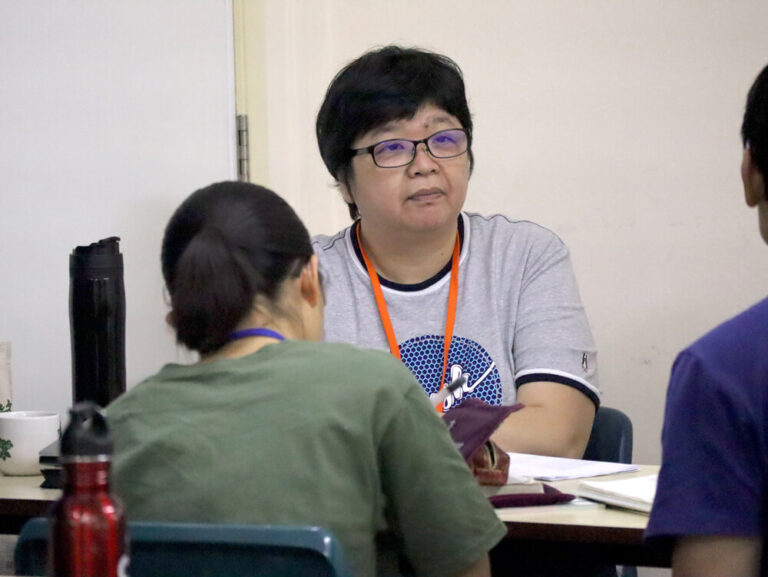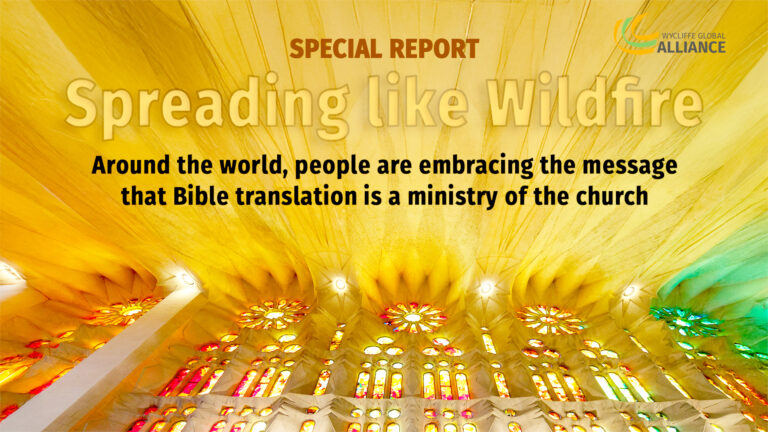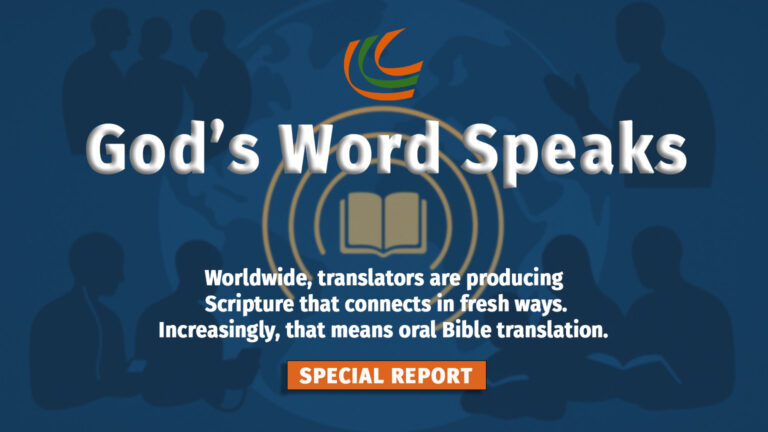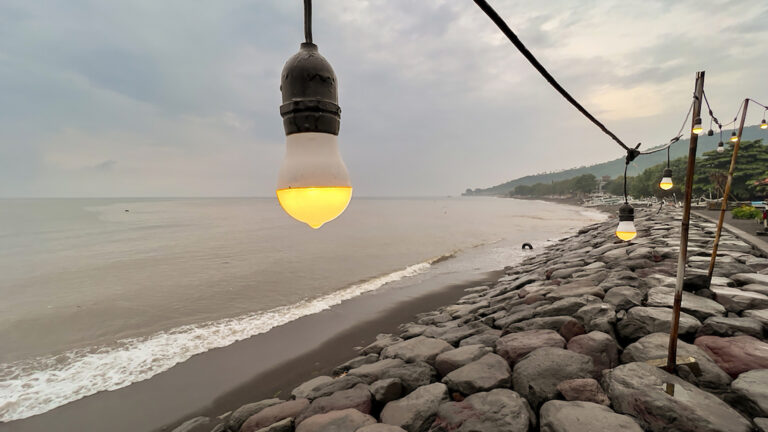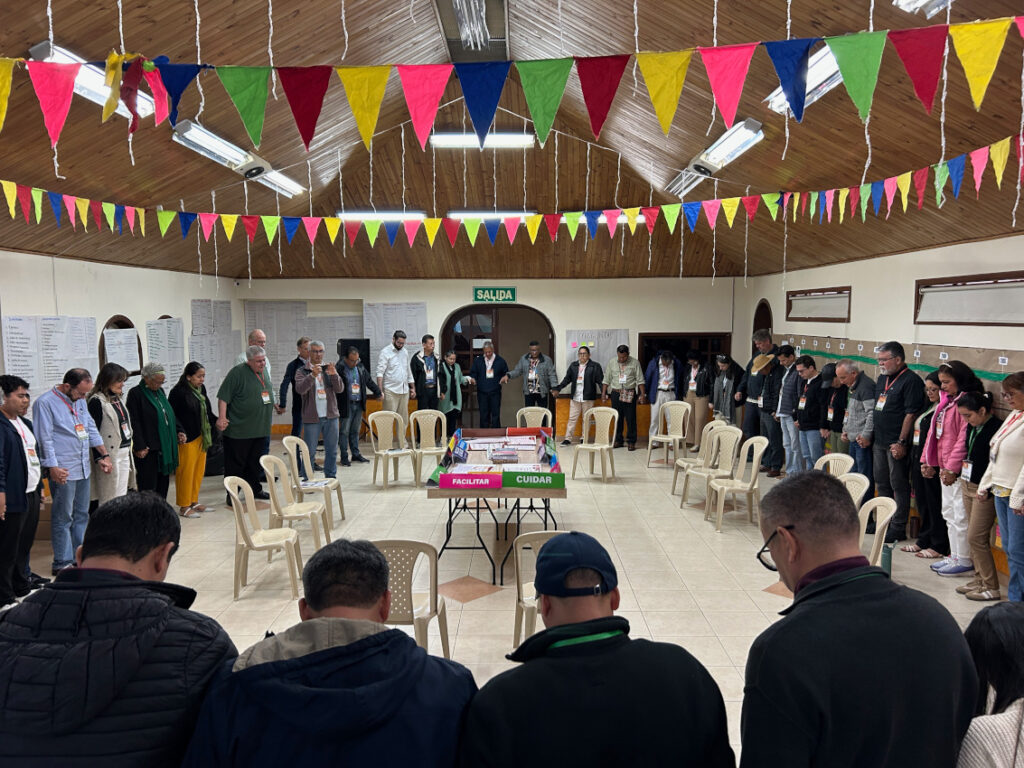
One marker of the mesas movement is to encourage more church involvement in Bible translation. Sometimes, establishing good working relationships requires overcoming mistrust, and focusing together on God’s mission.
‘The Bible Society is accustomed to working with the church,’ said Paulo Teixeira, Director of Institutional Relations, Bible Society of Brazil and coordinator of the Brazil table. ‘So I recognise the value of the church, but sometimes translation organisations don’t know this and are afraid of the church that it is going to put up its flag, its banner.’”’
After the Biblía para Todos os Povos (The Bible for all Peoples) translation conference held at a church in Maranhão in July, Paolo reflected: ‘The church loves translation, but you have to give it a little context and teach a little. And we learned from the church that the church has an enthusiasm that we sometimes lack, and working together is what this is all about.’
In Guatemala, Abdiel Lopez, Faith Comes by Hearing’s Regional Director for Northern Latin America, and a table facilitator, said: ‘The church began to see it as a pleasant surprise, because we didn’t compete. We didn’t put ourselves on a pedestal. We didn’t talk about our organisation, but about the work we do in God’s mission.’
‘The truth is that [previously], talking about Bible translation in South America was something like a very specialised language that only translation agencies knew how to do’, said Javier Mayorga, Coordinator of the Movimiento de las Tres Olas for South America. ‘But the mesas have been opening up the space for the national church and the indigenous church to learn about it. “What is a Bible translation project and how can they get involved and take ownership of the project?” That has been extremely helpful.’
One example has been churches partnering across national boundaries to share data about Bible translation needs, strategies and progress. The existing, English-based systems are not accessible to many in Latin America.
‘The difference is that the church will be more likely to listen in a language and terminology that is understandable for the church’, said David Cardenas, Americas Area Director for the Wycliffe Global Alliance. For Latin America and South America, that means in Spanish and Portuguese, and using more accessible terms.
Part of collaboration is valuing what each partner has to contribute, whether experience, resources or information.
‘Everyone has something to contribute’, Javier said. ‘And they can do so. Because sometimes the indigenous church says, ‘we don’t have dollars to contribute’. But they take ownership of the project as if it were their own. They champion it. And they also contribute materials, transport and mobilisation. It helps a lot.’


